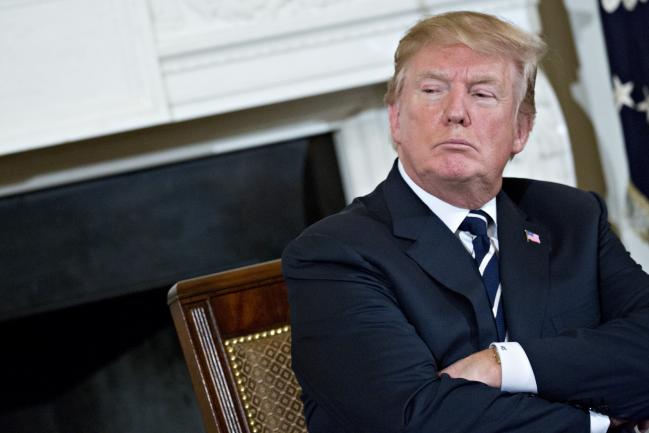(Bloomberg) -- Economists took a dim view of various Trump administration policies in a survey, foreseeing a growing budget deficit along with unfavorable impacts from actions on immigration and trade, even as they expect short-term positive effects from tax cuts and looser regulation.
A National Association for Business Economics survey of 211 members showed a majority expects the recent tax legislation to boost expansion this year by a quarter to three-quarters of a percentage point. Another question showed that 43 percent see a positive impact on the economy from the administration’s regulatory actions, yet another 40 percent said the effects would be positive in the near term and negative in the longer run.
The survey underscores how many economists diverge from the president on growth expectations, despite policies the White House and Republican lawmakers say will lead to a faster expansion over the long term. The reality, according to the economists, is that deregulation and tax reform are helpful for short-lived boosts to growth, but it’s much harder to sustain that going forward.
“The panel expects near-term boosts in economic growth, but is less optimistic about longer-term results,” Jim Diffley, the survey chairman and an economist at IHS Markit Ltd., said in a statement. The survey, released Monday, was conducted from Jan. 29 to Feb. 8.
Fiscal Policies
The Economic Report of the President, released last week, showed the White House expects 3.1 percent GDP growth in 2018 and 2.8 percent in the long term. Economists surveyed by Bloomberg are projecting 2.7 percent expansion this year, slowing to just 1.9 percent by 2020.
On fiscal policies, 61 percent in the NABE survey said the government should reduce the deficit as a share of gross domestic product, but the vast majority, at 86 percent, said the current tax and spending policies are likely to do the opposite. More than two-thirds said executive actions on immigration have been “consequential, in an unfavorable way,” and nearly three-quarters had a similarly cool response on policies toward foreign trade.
While 93 percent of economists in the survey expect the Tax Cuts and Jobs Act to have a positive impact on growth in 2018, that optimism drops to 67 percent of people when looking at the outlook for 2027. When it comes to the individual tax system, about 48 percent of those polled said the new tax law has made it worse than the former system, compared with 38 percent who said it’s better.
Most NABE respondents, about 80 percent, also saw it as unlikely that any “meaningful infrastructure package” would be enacted in 2018. The survey was taken before President Donald Trump’s plan was announced Feb. 12.
On domestic economic policies, about 59 percent of those surveyed said that more should be done to mitigate climate change and 78 percent said policies should address income inequality, with most of them prioritizing education. A fifth of respondents said economic policies shouldn’t be used to mitigate income inequality.
